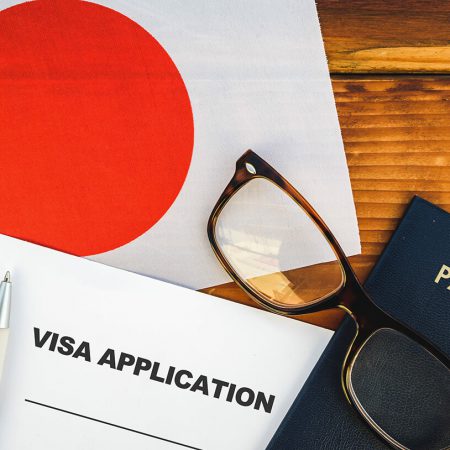Study in Japan: Pursuing a Master’s Degree

Taking Japan’s globalization initiatives into account, the Japanese government is promoting higher education in its country with the “Top Global University Project.” If you’ve been thinking about pursuing higher education in the land of the rising sun, this project has your back! With a goal to boost internationalization in the country, this program builds connections with international universities. This way, Japan’s excellent academics are more accessible to foreign talent.
This is the perfect time for postgraduates looking to proceed with their academic career abroad. Japan has numerous fields of study with only expert instructors. The best part is that you get to hustle for your master’s degree in an ultra-modern country that keeps its traditions, culture, and heritage alive! Here’s a glimpse of what you can expect for your postgraduate studies in Japan:
Table of contents
Study in Japan: Pursuing a Master’s Degree
There are 3 types of Japanese universities available to foreign postgraduates: (1) Public universities, which local bodies and corporations organize and manage to act as cultural and intellectual centers that serve people in the general community with opportunities for higher education. (2) National universities that the Japanese government has established in all 47 Japanese prefectures or districts to balance the provision of higher education throughout the region. (3) Private universities, which independent organizations run through their own visions and unique approaches to research and provision of higher education.
Generally, all universities in Japan are globally renowned for their high-tech courses and are well-reputed in various fields of research. You can rest assured that you’ll get only the best academic experience with whichever type you go for. Read on for some more information on the first-rate education of the country and how to get started on your pursuit for a master’s degree in Japan!
Academic Excellence
The Japanese greatly value education, so much that their constitution protects academic freedom. With this much priority for education in modern Japanese society, there are at least 700 universities, 75% of which are private, throughout the archipelago. Seven of these are among the top 50 universities in Asia, with 2 in the global top 100. Rightfully so since Japan reserves only the best quality for their teaching and research systems!
The Japanese academic year typically begins in April. Some universities also offer master degree programs in October, which is when the 2nd semester begins. Master’s degrees in Japan last for 2 years. Throughout your program, you should accumulate 30 credits through different core, research, and elective courses, with each course usually counting for 2 credits. For 3 semesters, you’ll be grinding for these credits until you reach the final semester to conduct a master’s research project and present your master’s dissertation.
Available Scholarships
If you’re thinking about getting your master’s degree in Japan under a scholarship, look up the Japanese Government’s Ministry of Education, Culture, Sports, Science and Technology (MEXT) for a list of the country’s top universities and all-expenses-paid programs. Several scholarships are available to international postgraduate students, but through the MEXT program, you have better chances of getting into the best national universities.
The MEXT offers scholarships that cover all school fees depending on the degree you’re pursuing. These also tend to be exclusive to schools that deliver their courses in Japanese, so be sure to secure your JLPT certificate. While there are schools that offer courses in English, the MEXT program specifically grants international students scholarships for Japanese national universities. Consult your nearest Japanese consulate to see if you’re eligible for a MEXT scholarship!
Quality of Life
You must have already done your research about Japan if you’ve been thinking about proceeding to higher education in the country. Perhaps you’ve come across articles claiming a high standard quality of life in the land of the rising sun. We can only confirm that they are all true. Japan indeed is among the safest and most welcoming countries in the world, with a language and culture that appeals to many foreign students.
Postgraduate students aiming to get a master’s degree also have special privileges and access to resources when studying in Japan. You’d get to conduct research or even work in a related industry as soon as you graduate! In fact, around 8,000 foreign master’s degree holders got employed once they graduated in 2012. Suppose you get a job offer after excelling in your studies, you can even apply for a change in your residency status from student to a worker!
People surely have their own reasons for admiring Japan. The country’s impact on the world is undeniable. Young people tend to have gotten their first foray in its culture through anime and manga. With a global influence through media alone, it’s no surprise that anyone has dreamt of living in Japan at least once in their life!
Application Process
Applying for a master’s degree at a Japanese university as a foreigner is generally the same as how processes in your home country might be. A bachelor’s degree is the most basic requirement. The university of your choosing may also require you to submit Graduate Record Examinations (GRE) results or even take an entrance examination in the field of study you’re aiming for. These are pretty standard prerequisites in a postgraduate’s application!
Unless your bachelor’s degree is from a country with English as an official language, you will need to provide a certificate of English language proficiency. Almost all Japanese universities accept IELTS, TOEFL, and C1 Advanced as official certification. Similarly, if you’re getting into a course that universities deliver entirely in Japanese, you need to provide your JLPT certificate. Universities require at least N2 proficiency. This is only appropriate since you’ll need near native fluency for a course for native Japanese speakers!
Universities also have their own application forms ready for you to download. You will have to attach this with other application documents like an academic essay or personal statement for applying, transcripts of your college records and a bachelor’s diploma if you’ve graduated, and letters of recommendation (usually 2). If you’ve found a university that offers the course you like, check out their official website for more comprehensive details on their unique application process.
Conclusion
With master’s degrees in the fields of management, environmental engineering, information sciences, economics, and materials science among others, Japan indeed has a plethora of opportunities for postgraduates seeking higher education. As Japan continues to boost its international connections, its global status as one of the safest and most welcoming countries in the world is accessible to foreign students now more than ever. If you want to secure your future with quality education, look into the best Japanese universities today and see if they offer the master’s degree you seek!
Motto Japan, the community platform to support foreigners with the foundation for life in Japan, including Japanese study, job opportunities, and housing service. Motto Japan Media will provide a wide variety of information for Japanese fans all over the world, to create a cross-cultural environment and enrich the life of foreign residents in Japan!













Leave a Reply